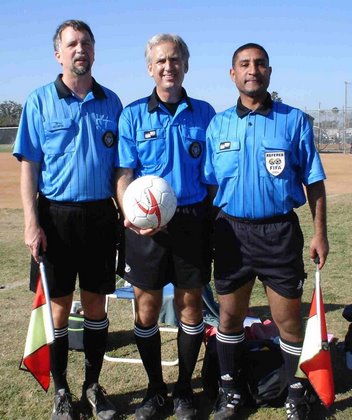Refereeing
I had been a soccer coach and was truly amazed at some officiating I observed. None of it was overly bad. It was just wrong. And I thought if I could do better, I should. So I took my first refereeing course. I immediately discovered it was much harder than it looked.
I kiddingly suggest that if I had known that refereeing was more about managing people than knowing rules that I would have never gotten into it in the first place. But I am kidding. And I am serious. Officiating entails learning the rules of your game and once one has mastered those, then it becomes an exercise in managing people. Sometimes very angry people and often very emotional people.
I love officiating. I try to do my best no matter the age or skill level. But it is difficult at times. While 95% of the time there are no problems, there are those occasional games. The hardest part of officiating is remaining calm when others around you have lost their cool. Sometimes both teams, along with coaches and fans, have lost their cool and their wrath is directed at the official. A deep breath, count to 10, then a measured response. The exception is always when an adult is screaming at a child (young referee). Then no counting to 10 is necessary.
CALIFORNIA SPRING CUP

Talk about reffing with the best! Here I am in Anaheim at the California Spring Cup in March, 2007. They gave me a FIFA Referee to be one of my assistants.
Posted in Uncategorized | Edit | 0 Comments